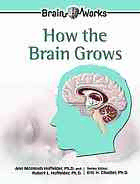
How the brain grows PDF
Preview How the brain grows
How the Brain Grows http://avaxhome.ws/blogs/ChrisRedfield The Brain and Love A Day in the Life of the Brain How the Brain Grows Inside Your Brain Seeing, Hearing, and Smelling the World How the Brain Grows Ann McIntosh Hoffelder, Ph.D. and Robert L. Hoffelder, Ph.D. S E ERIES DITOR Eric H. Chudler, Ph.D. To Danielle, Emma, Mack, and Michael, and the young people of their generation, whose awesome brains are our inspiration and challenge . . . To those experts in the field of neuroscience and science writing whose research, experience, and theories laid the foundation . . . How the Brain Grows Copyright ©2007 by Infobase Publishing All rights reserved. No part of this book may be reproduced or utilized in any form or by any means, electronic or mechanical, including photocopying, recording, or by any information storage or retrieval systems, without permission in writing from the publisher. For information contact: Chelsea House An imprint of Infobase Publishing 132 West 31st Street New York NY 10001 (cid:0)(cid:2)(cid:3)(cid:4)(cid:5)(cid:4)(cid:6)(cid:7)(cid:8)(cid:9)(cid:7)(cid:10)(cid:8)(cid:11)(cid:12)(cid:4)(cid:13)(cid:14)(cid:14)(cid:7)(cid:10)(cid:5)(cid:15)(cid:5)(cid:16)(cid:8)(cid:12)(cid:2)(cid:11)(cid:12)(cid:17)(cid:2)(cid:11)(cid:17)(cid:18)(cid:19)(cid:3)(cid:16)(cid:2)(cid:20)(cid:5)(cid:15)(cid:2)(cid:8)(cid:11)(cid:7)(cid:21)(cid:5)(cid:15)(cid:5) Hoffelder, Ann McIntosh. How the brain grows / Ann McIntosh Hoffelder and Robert L. Hoffelder. p. cm. — (Brain works) Includes bibliographical references and index. ISBN 0-7910-8946-0 (hardcover) 1. Brain—Growth—Juvenile literature. I. Hoffelder, Robert L. II. Title. III. Series QP376.H66 2006 612.8’2—dc22 2006017149 Chelsea House books are available at special discounts when purchased in bulk quantities for businesses, associations, institutions, or sales promotions. Please call our Special Sales Department in New York at (212) 967-8800 or (800) 322-8755. You can find Chelsea House on the World Wide Web at http://www.chelseahouse.com Text design by Keith Trego Cover design by Takeshi Takahashi Printed in the United States of America Bang KT 10 9 8 7 6 5 4 3 2 1 This book is printed on acid-free paper. All links and Web addresses were checked and verified to be correct at the time of publication. Because of the dynamic nature of the Web, some addresses and links may have changed since publication and may no longer be valid. Table of Contents Introduction 7 1 Structure and Function of Your Brain—Part 1 11 2 Structure and Function of Your Brain—Part 2 21 3 The Brain Grows Communication Leads to Connections 34 4 The Prenatal Period 48 5 The First Five Years 60 6 Ages Six to Twelve 76 7 The Teen Brain 85 8 Frontiers of the Future 94 Glossary 98 Bibliography 105 Further Reading 113 Index 116 Introduction The brain grows— by leaps and bounds . . . with ups and downs . . . The human body is a series of interrelated systems: circulatory and respiratory systems, skeletal and muscular systems, diges- tive and excretory systems, endocrine and reproductive systems, lymphatic and immune systems, and the nervous system. From its earliest development in the fetus, a complex mass of tissue housed in your skull controls and coordinates these systems, which play out all of your mental and physical actions. This complex mass of tissue is your brain. Your brain is a major part of the nervous system, and without it, none of the other systems could work. 7 8 How the Brain Grows The brain controls and coordinates the activity of the vari- ous systems of the human body. Look at your day. Last night, you slept. This morning, you woke up (with or without an alarm or someone pull- ing you out of bed), ate breakfast (we hope), and went to school. Somehow, along the way, you went through your morning routine, managed to get dressed, and grabbed your books, your homework, and your gym shoes. Lunch, snack, ice cream money . . . you made sure you had every- thing you needed. You arrived at school and talked to your friends about the usual subjects: “You going to practice after Introduction 9 school?” “That was an awesome game last night!” “What have you heard about the school dance this weekend?” And so on, until you heard the bell ring and ran to class. What was happening in your head that enabled you to do what you usually do almost every day? Where did this brain come from? What is in it? Does it grow? If it grows, how? What affect does its growth have on you? These are ques- tions we will ask and answer in this book. We will also look for how you, and your choices, affect your brain. The follow- ing pages will help you visualize, analyze, and appreciate a truly amazing part of yourself—your brain. CONNECTIONS The brain does grow, and the “how” is the primary focus of this book. Chapters 1 and 2 will help you establish a visual map of the brain and learn to identify the names and func- tions of its parts. In Chapter 3, we will look at the connec- tions the brain makes as it communicates within itself and throughout the whole body. In making these connections, the brain grows. This foundation, in both vocabulary and understanding of the structure, functions, and communication processes of the brain, begins your journey. You will be able to recognize more clearly the different parts of the brain, what they do, and how they do it. Throughout all of the chapters, we will see how the brain grows—how it begins, develops, and expands in size and complexity. We will see how it changes from when we are babies to our teenage years and beyond. To explain these topics, in Chapter 4 we will follow the prenatal develop- ment of the brain and its evolutionary history. Then we will
